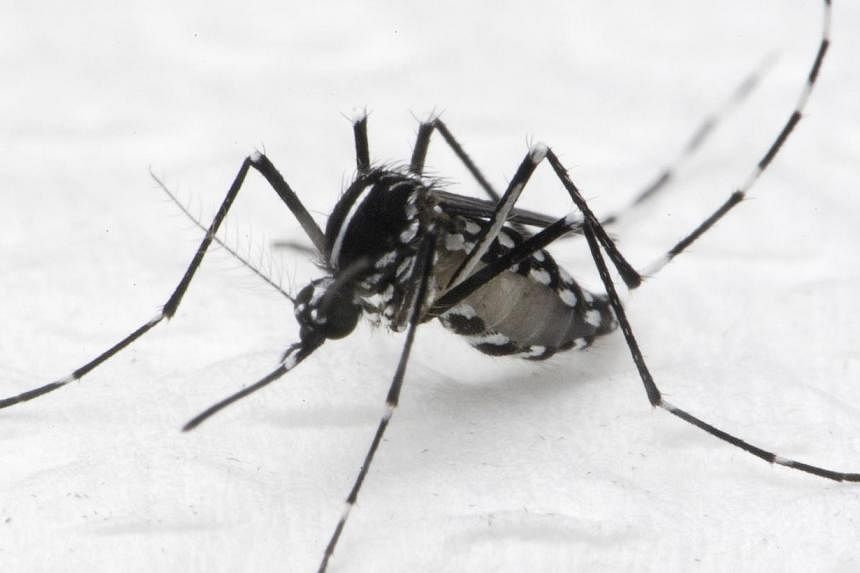SINGAPORE - Singapore has done laboratory tests on a new way to control the mosquito population, in the latest tactic to combat dengue.
A panel of experts will review the research and decide if field tests should be done, said Second Minister for the Environment and Water Resources Grace Fu on Sunday at the launch of the nationwide 'Do the Mozzie Wipeout' campaign in Bukit Panjang.
Last year, the National Environment Agency's (NEA's) Environmental Health Institute began doing laboratory tests of male Aedes aegypti mosquitoes infected with a bacteria, Wolbachia, that causes their mating with wild females to produce sterile eggs.
These eggs do not develop into mosquitoes.
The NEA's tests found that male Wolbachia-carrying mosquitoes can compete with wild males for mates.
The use of mosquitoes infected with Wolbachia, which has no effect on humans, has been field tested in Australia, Vietnam and Indonesia.
There are no plans yet to use these bugs on a large scale here, the NEA said.
The panel of experts studying the research comprise Duke-NUS epidemiologist Duane Gubler, Singapore Armed Forces biodefence centre head Vernon Lee, Tan Tock Seng clinical microbiologist Tim Barkham and three others from the United States, Britain and Australia.
They will meet in August.
At Sunday's campaign's launch, Ms Fu said that about 7,000 dengue cases have been reported this year, as at June 7. While this is fewer than during the same period last year, "the level is still too high", she said.
The number of cases has been rising in recent weeks and the months of June to October tend to have higher dengue rates because mosquitoes breed faster and the dengue virus grows faster in these warm months.
She urged residents to take preventive measures such as capping bamboo pole holders when they are not in use, and covering toilets when they travel overseas.

